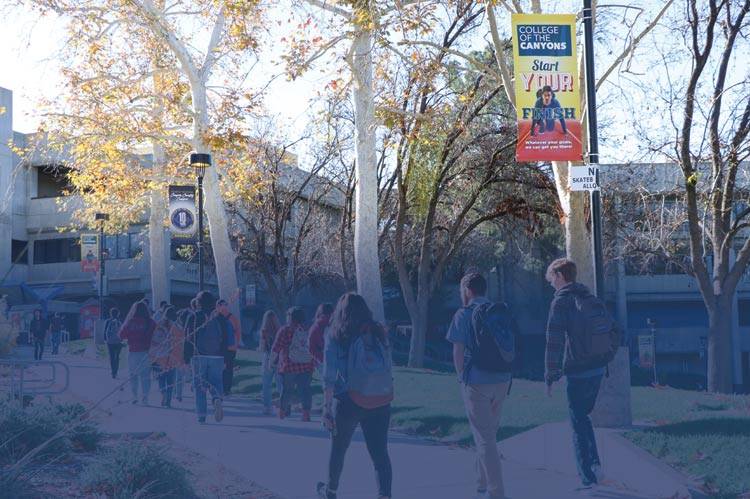Institutional Learning Outcomes
Why have Institutional Learning Outcomes?
Institutional Learning Outcomes can be used to improve student learning and instructional approaches through an examination and discussion of assessments of broad learning outcomes shared by multiple departments and divisions. They are also required for accreditation purposes. (ACCJC Standard I.B.1[i], I.B.2[ii] and II.A.11[iii])
How have we arrived at our ISLOs?
Beginning in 2008, faculty and administrators collaborated to develop Institutional Learning Outcomes based on GE, Basic Skills, and CTE requirements culminating in the 2010 Opening Day activity where 14 ISLOs were created.
The College of the Canyons Academic Senate adopted the current 9 Institutional Student Learning Outcomes on May 2016.
Historical Data
2008-2013 ISLO work

 My Canyons
My Canyons  Canvas
Canvas 
